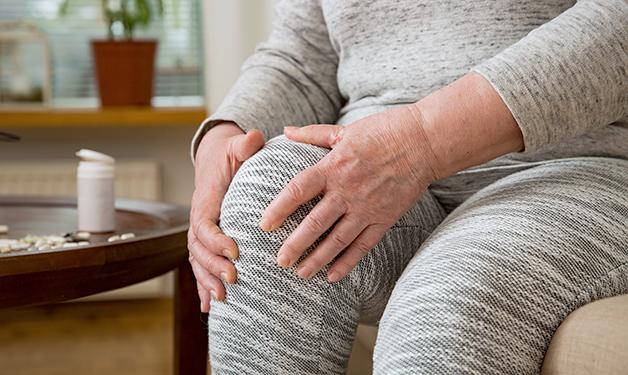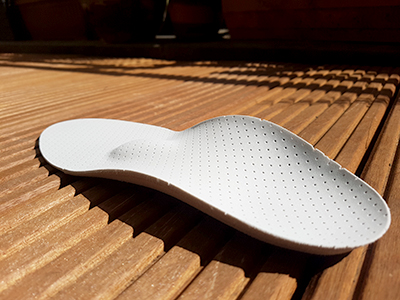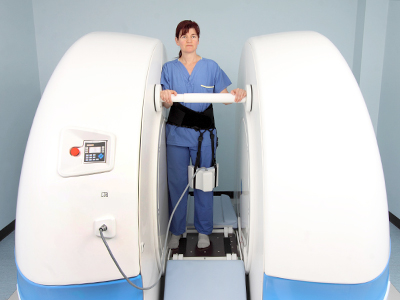
Research tracks the effectiveness of orthotics to treat the highly common and costly condition of knee osteoarthritis.
The pain from knee osteoarthritis can be crippling for patients—so too could be its impact on the Canadian health care system if left unchecked. Shoe-worn insoles, commonly known as orthotics, could be an effective treatment for some patients, but pinpointing which ones will benefit can be challenging. Fortunately, Vancouver Coastal Health Research Institute (VCHRI) researchers may have a solution. Dr. Michael Hunt and Dr. David Wilson are using state-of-the-art technology to examine how different types of orthotics could improve patients’ biomechanics and reduce knee pain.

An estimated 4.4 million Canadians—and 49 per cent of people over the age of 70—had osteoarthritis in 2010, according to an Arthritis Alliance of Canada report. Projections estimate that by 2040, those figures will rise to 10.5 million Canadians and 71 per cent of adults over 70 years of age. Patients’ conditions vary, but pain and joint stiffness are common symptoms. Without a known cure, patients often struggle to find effective treatments to manage their pain, which can impede their ability to work, exercise and perform everyday tasks, such as climbing stairs.
“While knee osteoarthritis is not a risk factor for mortality,” notes Hunt, “It does affect a patient’s ability to remain physically active, which may increase his or her risk of developing other diseases, such as cardiovascular disease, lung disease and cancer.” There is also a higher reported rate of depression and mental health issues among this patient population, likely due to the decrease in mobility caused by knee osteoarthritis.

Study investigates insoles for managing pain and reducing health care costs
For their study, Hunt and Wilson are examining how best to determine which patients would most benefit from insoles to manage their knee osteoarthritis, and which types are best suited to them.
“The hope for this study is to provide a better treatment option that is easier on patients and the health care system,” says Hunt. “We know there is not a one-size-fits-all approach, so we want to predict with as much accuracy as possible which patients will respond better to insoles as a treatment based on the characteristics of their knee osteoarthritis.”

Study participants are men and women ages 50 and over who suffer from knee osteoarthritis. Participants receive a foot posture 3D scan assessment to create a custom orthotic insole, which they can keep. They then visit the Motion Analysis and Biofeedback Laboratory at UBC Hospital to complete questionnaires, a 3D walking assessment and measurements of their feet and lower leg. Lastly, participants receive an Upright Open MRI scan of their knee while they stand with different insoles.
The Centre for Hip Health and Mobility’s Upright Open magnetic resonance imaging (MRI) machine at Vancouver General Hospital is the only one of its kind in the world dedicated for research use. The Upright Open MRI images bones, joints and cartilage in weight-bearing postures—such as standing and squatting—to provide critical information about joint function.

Based on their findings, Hunt and Wilson hope to better predict and identify which patients will and will not respond to the use of orthotics to treat their knee osteoarthritis. These findings could have huge advantages in terms of providing efficient patient care and quicker recovery, saving millions in health care dollars and helping younger patients, as well.
“The challenge for patients 40 years old and younger is that joint replacement therapy is often discouraged for this age group,” says Wilson. “Meaning that younger patients have fewer treatment options. Our research could potentially help them, too.”
The “Shoe-worn insoles for knee osteoarthritis treatment: biomechanical, imaging, and clinical outcomes” study is recruiting participants. For more information, please visit: https://www.vchri.ca/research-study/shoe-worn-insoles-and-knee-osteoarthritis.


